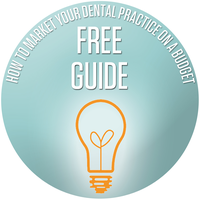
Key Takeaways:
- There are multiple ways to improve productivity in healthcare settings – find what you want to focus on
- Staff members can grow their skills and feel empowered
- You can identify routines or tasks that are not effective at your office
- Each person can play a role in increasing productivity in their workplace
Make staff meetings conversational:
Having a meeting plan is helpful, and we like to be organized. Although, this approach may not leave enough room for discussion. Questions come up during meetings, and they should be encouraged. Each staff member will see and hear different things based on their role in the office. By having a discussion everyone can brainstorm solutions. This helps create a collaborative team environment between physicians and staff members.
Evaluate productivity and recognize staff with rewards:
Productivity metrics vary in a healthcare setting. Some offices corelate financial success with how many patients they see in the day. Others may look at the efficiency of their operating hours and how much staff is required during that time. No matter the focus, it is important to set expectations with your staff, and to establish a routine of performance reviews.
When you see improvements in staff productivity, it is the perfect time to celebrate. Bonuses will encourage your team, but at the same time a small reward can go a long way and feel more personal. This could include Employee of the Month awards, a spotlight on your social media pages, and goodie bags.
Provide training to make each staff member a gatekeeper:
For healthcare offices of any size, it is important to enable your staff members to be self-sufficient. You will want them to be well-versed in office technology and non-emergent processes that do not require a physician.
This will free up the providers to see patients without interruption. If there are any questions or tasks that do require a physician, they can be brought up at a more suitable time. Another tip is to teach your staff about templates and shorthand.
Develop typing skills to save time:
With the focus on using technology for office efficiency, it is important to practice fast typing. There are training programs made to help increase typing speed, so staff can reduce their time spent between patients. Once you get comfortable you can even practice typing as you talk. These skills take time to develop but will pay off in the long run.
Work on notes ahead of time and have patients arrive earlier
Physicians can boost their clinical efficiency by spending time before visits to go over patient charts, prior notes, and pre-writing new notes. By the time you are with the patient, most of the notes can already be done.
You can also try giving your patients a bigger window of time to arrive and check-in. For example, if the appointment is at 9:00am and you advise them to arrive at 8:40am it provides an extra cushion in case any delays come up. Then patients will be able to fill out needed forms and it will give staff time to do any pre-visit work.
We hope these tips are helpful and you can try them out with your staff. If you have any suggestions for productivity in healthcare, feel free to share them in the comments.



